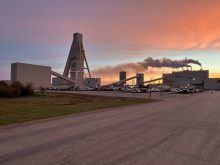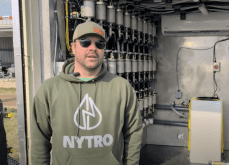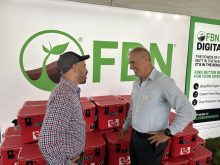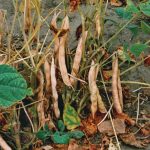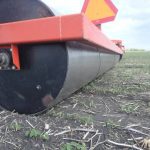Reuters — U.S. fertilizer producer Mosaic Co. may need to restart its idled potash mine at Colonsay, Sask. next year, as international buyers work through inventories, the company said on Tuesday.
Mosaic halted production in July at the mine, about 70 km southeast of Saskatoon, for the rest of 2016 due to low global potash demand and weak prices.
Analysts have speculated Mosaic may not reopen the mine in 2017, due to excessive global capacity and a faltering farm economy. Rival K+S AG will start production next year in Saskatchewan, and PotashCorp will complete expansion of its biggest mine there.
Read Also

More canola, spring wheat likely to be seeded this spring
As spring planting approaches, farmers are busy planning which crops to seed this year and how much. With that, market thoughts have turned toward planted area projections, as Statistics Canada is set to issue its report on Thursday.
Fertilizer demand looks strong for spring seeding, said Mosaic CEO Joc O’Rourke.
“We’re believing it will probably be necessary for us to be starting up Colonsay in the early new year,” he said.
Potash inventories in Brazil are low, supplies are dwindling in India and fertilizer is moving faster in China, said Mosaic senior vice-president Rick McLellan.
The Colonsay mine’s capacity is 2.6 million tonnes annually.
Mosaic reported adjusted third-quarter profit that handily beat analysts’ estimates as the company sold more potash than it had expected.
The company sold 2.2 million tonnes of potash, above its forecast of 1.8 million-2.1 million, and up from 2.1 million tonnes a year earlier.
Still, the average realized price was $160 per tonne of potash, down from $265 a year earlier (all figures US$).
Larger rival PotashCorp last week reduced its profit guidance for the year, saying that a recovery of the potash market would take more time.
Mosaic, the world’s largest producer of finished phosphate products, sold 2.5 million tonnes of phosphate in the quarter, at an average price of $326 per tonne of diammonium phosphate, compared with 2.1 million tonnes at $451 per tonne a year earlier.
Plymouth, Minn.-based Mosaic’s net earnings fell to $39.2 million, or 11 cents per share, from $160 million, or 45 cents per share, a year earlier.
Excluding items, profit was 33 cents per share, surpassing analysts’ average estimate of 10 cents, according to Thomson Reuters I/B/E/S.
The company recorded a one-time $60 million charge related to a leak of contaminated water through a sinkhole at its New Wales plant in Mulberry, Florida.
The company said in September it expected the incident to cost $20 million-$50 million.
Net sales fell 7.3 per cent to $1.95 billion, but exceeded estimates of $1.92 billion.
— Reporting for Reuters by Ismail Shakil in Bangalore and Rod Nickel in Winnipeg.





